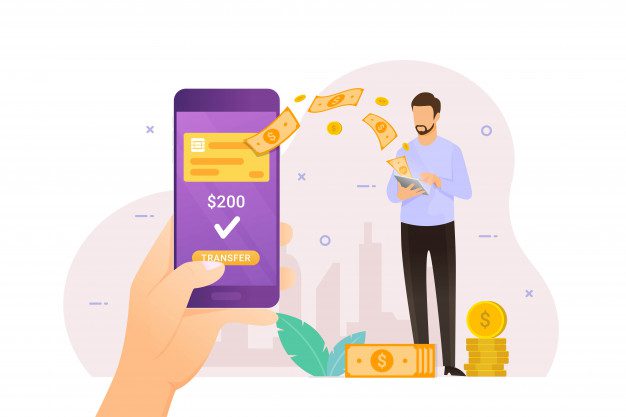There used to exist a time when merchants had a choice on the types of payments they would accept. During this time, anything that was not a card payment was considered an ‘alternative payment.’
Today, mobile wallets and other alternative payments are the leading global payment methods. According to the World Bank, 45% of consumers globally use a mobile wallet vs. 18% of consumers that use credit cards for payments.
Over the last few years, the payments industry has seen a significant paradigm shift. Today, alternative payments are mainstream, and merchants no longer have a choice in accepting them if they want to continue operating at full speed.
Alternative payments aren’t a fad. They are here to stay. And, in fact, they are only going to continue dominating the payment industry. Here’s why:
Middle class expansion
Today, mobile wallets have overtaken card payments globally, and are particularly dominant in emerging markets. The world’s middle class is rapidly expanding, especially so in the same emerging markets where mobile wallets have taken hold. Two-thirds of the global middle class will live in Asia by 2030. Latin America is the fastest-growing ecommerce market in the world. We are seeing a fundamental shift in buying power away from traditional strongholds as e-commerce becomes truly global.
As cards never reached penetration levels seen in North America and Western Europe, consumers in Latin America, Asia, Middle East and Africa are simply skipping over cards and the mobile wallets that were born in the age of eCommerce.
The result? Mobile wallets were the preferred payment method in 2019, accounting for 44.5% of eCommerce transactions and projected to reach the majority (51.7.2%) by 2024. (Worldpay).
The Super App is born
Many wallets began as necessities to make payments easier within marketplaces.
GrabPay (Grab), GoPay (GoJek) and Mercado Pago (Mercado Libre) all began in a single country, either making transportation or eCommerce more accessible for consumers. Due to massive popularity and aggressive investments, these wallets have gone regional to be the top payment methods in multiple countries and offering the suite of services that have earned them “Super App” status.
GoPay has evolved from a ride-hailing app to include payments along with over 20 other services, and has accumulated more than 170 million downloads. Mercado Libre has become the de-facto online marketplace across Latin America, leading the region into an age of e-commerce and capitalising on the shift to online shopping accelerated by the pandemic. The business is now worth $63 billion on Nasdaq and its digital payment service, Mercado Pago, is dominant across the region.
Mobile wallet benefits
For any payment method to be successful, it needs to reach critical mass with both those who want to use it to pay (consumers) and those who need to accept that payment method (merchants).
For many consumers around the world, mobile wallets provide a truly accessible digital payments method. This results in less reliance on cash, which can be both inconvenient as well as precarious to carry around, as well as the ability to pay for goods and services online. Wallets have enabled billions of consumers to transact online for the first time, which on its own has been transformational.
Mobile wallets provide a lot of the benefits that have kept the established markets hooked on credit cards. Consumers are rewarded for loyalty through access to exclusive deals, rewards points, free vouchers and cash back, all with a key difference: they can be instantly redeemed within the app.
Additionally, as some wallets develop into Super Apps, they offer a marketplace for digital, local and on-demand services that have seamless, integrated payments.
With benefits like these, it’s clear to see why mobile wallets are so popular with consumers.
Money for merchants, another big win
While merchants no longer have a choice in accepting ‘alternative’ payments, there’s massive upside in mobile wallets as they’re where customers and revenues are moving.
For global merchants seeking to expand and increase revenues, tapping into these high-growth rising middle class markets requires allowing consumers to pay with their mobile wallet of choice.
Juniper Research estimates that the number of digital wallet users exceeded 2.6 billion in 2020 and is set to rise to over 4 billion by 2025. This provides a massive opportunity for merchants to reach consumers with wallets that simply cannot be reached with cards.
Mobile wallets go beyond payments
Mobile wallets can not only help merchants boost conversion rates and increase revenues, they can support e-commerce innovation, new customer acquisition and exciting new business models.
The rise of mobile wallets allows merchants to not just offer consumers a preferred payment method but creates new channels for discovery and the opportunity to acquire, convert, and build long-term relationships with consumers.
Let’s take ‘subscription bundling” as an example.
Subscription bundling allows merchants to find and reach prospective customers through with popular mobile payment types. For example, a streaming content provider could partner with a mobile wallet to offer users a free streaming subscription for three months. Since the offer is “bundled” with the mobile payment method, consumers can sign up and pay for the subscription with a single touch.
Super Apps provide marketplaces in which merchants can target products and services to consumers, making them a powerful tool for growth.
To be successful, merchants need focus on three things:
- Understanding which payment types are preferred by consumers in target markets
- Identifying customer spending preferences
- Aligning their payment acceptance strategies with these consumer and customer preferences
Accepting a wider range of the “alternative” payment types that are wildly popular with consumers in the fastest growing markets in the world is fast becoming table stakes. If merchants want to win, “alternative” payments can no longer be optional.
